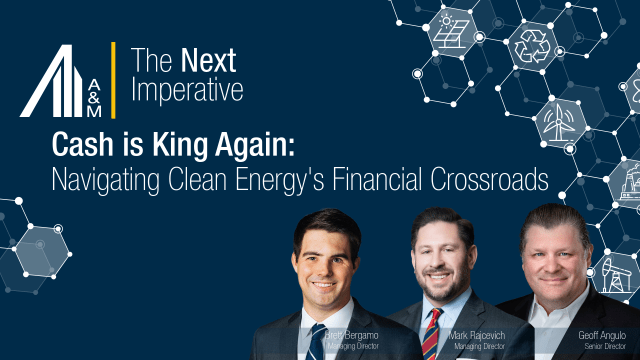Powering Data Centers: The State of the States
Diverging State Energy Policies Are Reshaping Hyperscale Data Center Strategy in the AI Era
As our previous white papers — Power to Compete, A New Deal for Clean Firm Power and When the Bill Comes Due — have shown, the energy transition under AI-era demand will require more than new infrastructure. It calls for new frameworks for how risk is shared, how investment is governed and how public benefit is secured.
Building on those system-level strategies, this article shifts the focus to the state level. Energy regulation is increasingly shaping the ground game for data center development. As artificial intelligence, electrification and onshoring accelerate electricity demand, power availability — not just cost or connectivity — is now the deciding factor in hyperscale site selection.
From tax incentives and permitting to cost recovery rules and clean energy mandates, state energy policy has become a critical filter in determining where hyperscale infrastructure can and cannot be built.
State-Level Data Center Energy Policy Overview
This white paper offers a detailed analysis of key state policies shaping data center infrastructure development:
- West Virginia: Data center–friendly policies featuring streamlined microgrid development, limited local oversight and no renewable energy mandates.
- Texas: Senate Bill 6 introduces firm load shedding, demand response programs, transmission cost allocation and interconnection study fees.
- Oregon: Requires long-term electricity purchasing agreements and fair cost allocation for grid infrastructure.
- Indiana: Establishes financial commitments from data centers and cost allocation mechanisms to protect ratepayers and modernize the grid.
- Washington: Expands clean energy standards to consumer-owned utilities serving large data center customers.
- Ohio: Requires large data centers to cover a minimum percentage of subscribed electricity capacity costs, protecting other customers.
- Emerging Legislation: Bills under consideration in Virginia, New York, California and others could further shape energy requirements for data centers.
Why This Matters to Data Center Developers and Investors
Understanding state energy regulations and policies is essential for:
- Site Selection: Choosing locations with reliable and cost-effective power access
- Regulatory Compliance: Preparing for changing mandates and permitting processes
- Investment Risk Management: Anticipating infrastructure costs and regulatory impact
- Sustainability Alignment: Meeting clean energy goals without compromising reliability
Explore the complete analysis to learn how energy regulation is shaping hyperscale site selection, infrastructure investment and long-term growth.



